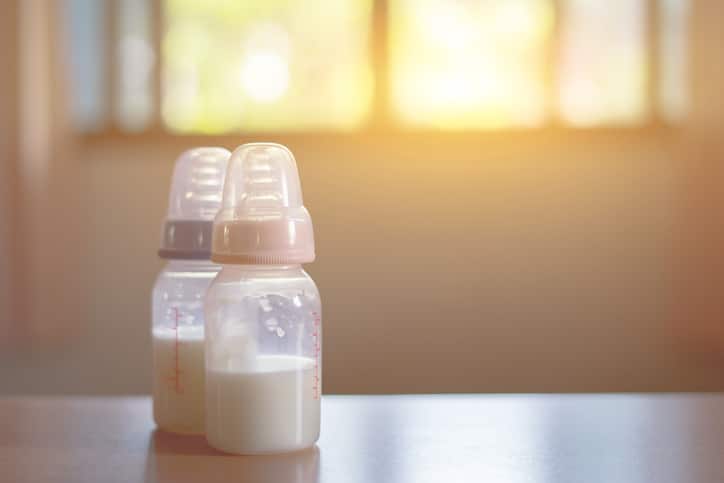Baby formula companies are exploiting parents’ emotions and manipulating scientific information and policymakers to generate sales, argues an international team of scientists that includes ANU experts.
“Milk formula companies are using an arsenal of sophisticated tactics to sell their products, including taking advantage of parents’ worries about their child’s health and development,” said ANU Associate Professor Julie Smith.
“The formula industry uses misleading information to suggest, with little evidence to support the science, that their products are solutions to common infant health and developmental challenges.”
Associate Professor Smith said baby formula advent inaccurately infer that specialised formulas alleviate fussiness, help with colic, prolong night-time sleep, and even encourage superior intelligence.
“These marketing techniques violate the International Code of Marketing of Breastmilk Substitutes,” she said.
In a three-paper series published in The Lancet, the researchers argue less than half of infants worldwide are being breastfed as recommended by World Health Organization (WHO) guidelines, while milk formula sales are on the rise.
According to the researchers, only about a third of infants in Australia are breastfed.
The 2023 Lancet Series on Breastfeeding calls for active promotion of breastfeeding and better regulation of formula marketing ploys.
Lead author Dr Phil Baker, from Deakin University, said Australia is one of only a few countries worldwide that has not implemented the WHO International Code of Marketing of Breastmilk Substitutes into national law.
“Instead, we have a voluntary code of conduct, so-called ‘self-regulation’, that is supposed to stop this marketing. But it clearly doesn’t.”
The researchers say tactics used to sway governments to avoid industry regulation are similar to the lobbying and advertising techniques used by the discredited tobacco industry.
Leading Australian dietician Dr Rosemary Stanton, who was not involved in the research, said Australian policymakers must urgently implement the recommendations laid out in the papers.
“We have been concerned about marketing of infant formula and toddler milks for years and we addressed the issue in the last Infant Feeding Guidelines in 2012. But the problem is even worse now with digital marketing,” said Dr Stanton.
Associate Professor Smith said in addition to abolishing manipulative marketing tactics, governments and workplaces must put in the work to better support women who want to breastfeed.
This includes extending the duration of paid maternity leave to align with the six-month WHO recommended duration of exclusive breastfeeding.
“Advice that breastfeeding is best for their babies’ health is no use if mothers without maternity leave or pay are forced to go back to employment out of financial necessity,” Associate Professor Smith said.
ANU and Deakin University will co-host the Australasia and Pacific virtual launch of the 2023 Lancet Series on Breastfeeding on 14 February.
More information, including how to register, is available at Eventbrite.



